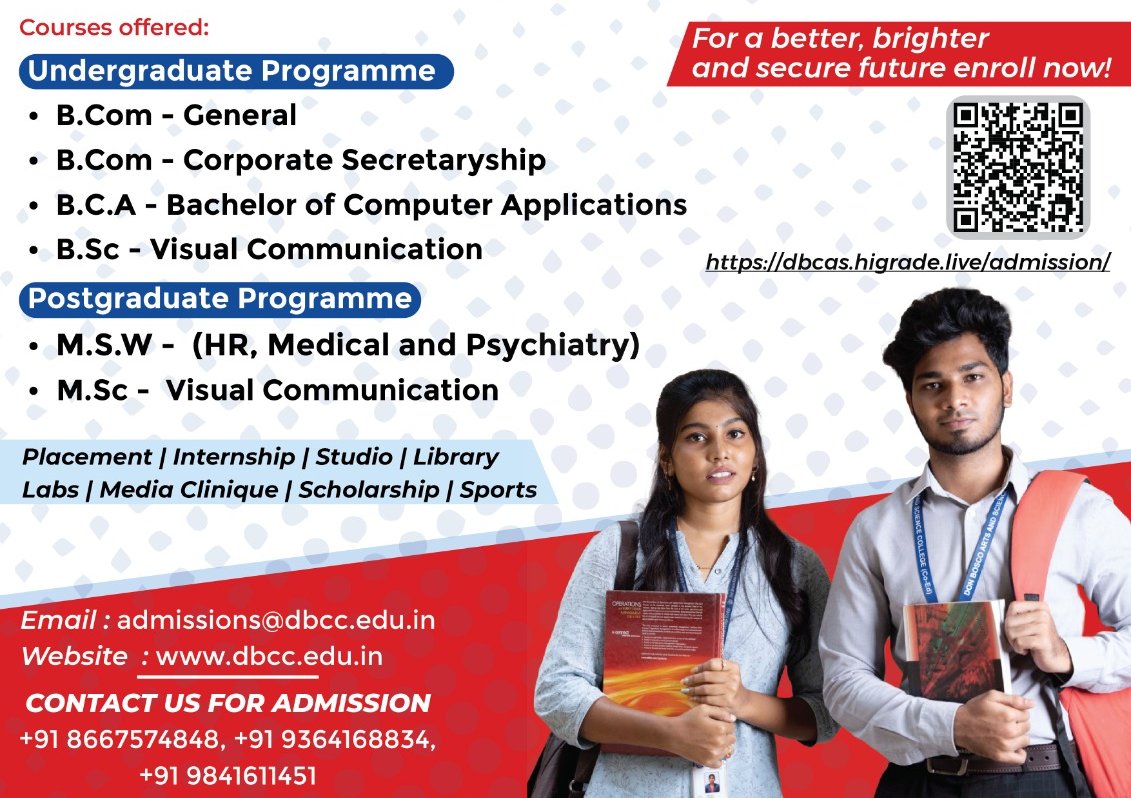Don Bosco Arts & Science College (Co-Education)
“Ad Astra per Aspera” – Through Hardships to the Stars

Secretary & Treasurer

Rev. Fr. Rajkumar Mervyn SDB
Secretary & Treasurer
Reflections and Aspirations: Secretary’s Perspective
Turning the Page: A Heartfelt Farewell and Thank You to the DBCC family
Dearest Students and Esteemed Colleagues,
It is with a heart full of gratitude and a touch of bittersweet nostalgia that I share my news: my time serving as Your Secretary and Administrator at DBCC is drawing to a close. As I prepare to embark on a new chapter, I find myself reflecting on the incredible journey we’ve shared over the past five years.
Leaving a place filled with so many dedicated individuals and vibrant minds is never easy. As A. Milne so perfectly wrote through Winnie the Pooh, “How lucky I am to have something that makes saying goodbye so hard.” And indeed, I feel incredibly lucky to have been part of this remarkable community.
My time here has been more enriching than I could have ever imagined. I’ve witnessed firsthand the unwavering dedication of our staff – the management who guide, the faculty who inspire, and the support teams who ensure everything runs smoothly behind the scenes. Thank you for your collaboration, your wisdom, and your commitment to fostering an environment where learning and growth flourish. Your passion is the bedrock of this institution.
And to the students – the vibrant pulse of DBCC – thank you. Thank you for your energy, your curiosity, your challenging questions, and your willingness to engage. It has been an absolute privilege to support your journey, celebrate your successes (both big and small), and witness your incredible potential unfold. You constantly reminded me why we do what we do. Seeing your growth, resilience, and creativity has been the greatest reward of my role.
Together, we’ve navigated challenges, celebrated milestones, launched new student programs, successful campus events, postgrad programs, DBTec, innovation labs, Dice programs, Media Clinique, and fostered a spirit of inclusivity, innovation, community building, Character formation, Virtue education and neighbourhood social action. These shared experiences and collective accomplishments are memories I will cherish deeply. We built something special here, brick by brick, conversation by conversation.
A special word must be reserved for our graduating students who stand at such an exciting threshold. You have worked incredibly hard to reach this milestone, and we are immensely proud of you. As the great Nelson Mandela powerfully stated, “Education is the most powerful weapon
which you can use to change the world.” Carry the knowledge, skills, values, and spirit you’ve cultivated here out into the world with purpose and passion. May God’s blessings guide your steps and illuminate your path towards a bright, impactful, and fulfilling future.
As I move on, I carry with me the lessons learned and the friendships forged within these halls. The path ahead is always uncertain, but as Paulo Coelho reminds us, “If you’re brave enough to say goodbye, life will reward you with a new hello.” I leave knowing that DBCC is in capable hands and has a bright future ahead.
Looking towards the next academic year and beyond, I offer you words of encouragement from Ralph Waldo Emerson: “What lies behind us and what lies before us are tiny matters compared to what lies within us”.
Continue to nurture that incredible potential within yourselves and within this community. Support one another, embrace new challenges, keep learning, and never stop striving to make a positive impact.
Thank you, once again, for the opportunity, the memories, and the profound sense of connection. It has been an honour and a joy.
I wish every one of you – staff and students alike the very best for a successful and fulfilling future.



